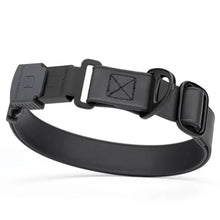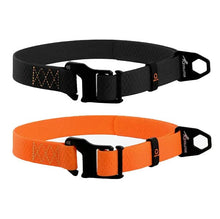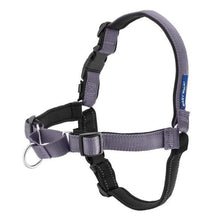12 Reasons Your Dog Might Stink And What You Can Do To Help

Some dogs smell worse than others but German Shepherds are not typically a stinky breed. Some dogs that may have more body odor include hounds, dogs that excessively drool, dogs with oily skin, and dogs with lots of wrinkles.
Unless your German shepherd has gotten wet, has been rolling in something smelly, or hasn’t had a bath in ages, a good grooming and brushing will usually keep them and your house from smelling bad.
If your German shepherd seems to stink all the time, some common causes that can contribute to dog odor include:
- Poor grooming or needing a hygiene trim
- Bathing too often
- Excessive licking due to allergies or anxiety
- Skin inflammation
- Bacterial infection
- Yeast infection
- Ear infection
- Dermatitis
- Hormone imbalance
- Dental disease
- Illness
- Poor diet
Poor grooming
German shepherds have a thick double coat that requires continual grooming. If their coat becomes matted, it can collect dirt, grime, grass, skin oils, etc. If the dog isn’t brushed regularly, it can collect moisture close to the skin, which can lead to a funky smell as well as fungal or bacterial infections.
Some German shepherds, especially long-coat or plush coats, may require more grooming, especially around the vagina or rear end. If urine or feces dribble onto the fur, a simple wash and trim of those areas will help prevent odor and keep the dog healthier.
Bathing
German shepherds don’t require lots of bathing. A bath a couple times a year is all they need to keep their skin and coat healthy, unless they get obviously dirty. Too many baths can strip their delicate skin of natural oils, which offer a barrier of protection as well as conditioning. Giving too many baths can actually be the cause of dry, itchy skin.
Excessive licking
Excess saliva on the fur can cause body odor. Constant licking can be a sign of many problems including allergies, anxiety, or even pain. Dogs that constantly lick can create an underlying health problem such as a bacterial or yeast infection.
Untreated yeast and bacterial infections can contribute to a cycle of itching that is hard to stop. If your dog constantly licks, you may want to visit your vet to rule out an underlying health problem, such as injury, illness, allergies, or infection.
Skin inflammation
Body odor can be a sign of skin inflammation. Causes of skin inflammation can include scratching from atopic dermatitis, contact dermatitis, parasites, allergies, canine seborrhea, yeast overgrowth, and more.
The most common areas of inflammation include the ears, feet, underbelly, muzzle, armpits, groin, base of the tail, around the eyes, and in between the toes. Ruling out the cause of the inflammation, as well as any underlying health conditions, is needed to heal the skin.
Bacterial infection
A break in the skin or wound can allow bacteria to enter the body, causing pyoderma or an infection. A sudden foul odor could be an abbess or infected sore. Symptoms include itchiness, redness, warmth, pustules, crusted skin, sores, discharge, and loss of hair. It is important to keep skin healthy, hydrated, and not to strip oils to help protect the skin from bacterial infections.
Yeast infection
Yeast infections are very common and often are caused by allergies or use of antibiotics. Symptoms of a yeast infection include odor, changes and color of the skin, flakiness, greasiness, redness, itching, red, inflamed paws, red inflamed or smelly ears, head shaking, and more. There are over the counter shampoos to prevent this but once the pet has one, you will probably need a prescription to get rid of it.
Ear infection
German shepherds have very deep ear canals and some dogs just seem prone to infections. Symptoms include foul odor, redness, discharge, dirty ears, scratching, warm hears, head tilting, pain, and more. To prevent infections, ears should be kept clean and dry. Once infected, a trip to the vet is needed.
Dermatitis
Dermatitis or atopy is very similar to skin inflammation but occurs due to an allergic reaction after a dog has ingested, sniffed, or rolled in something it is allergic to. The odor is not caused directly from dermatitis but rather it is due to secondary issues, such as scratching and licking the itch. To prevent dermatitis, you have to remove the allergen, which is not always possible.
Hormone imbalance
A symptom of hormone or endocrine imbalances in dogs, such as low thyroid or Cushings disease, can be skin irritations. Hormone related skin problems include odor, dry skin and hair, thickening of the skin, weight gain, alopecia, and dandruff. Changes in the skin, hair, and behavior is a signal to see the vet for routine lab work.
Dental disease
Bad breath can be a sign of dental disease or illness. Dental disease can lead to infections, heart problems, pain, tooth loss, and other problems. Illnesses that can cause bad breath include kidney disease, toxicity, diabetes, blockages, oral tumors, and respiratory infections. An infected mouth wound or a foreign object trapped in the teeth or gums can also cause odor.
Anal glands
If your dog suddenly smells like a funky butt, it may be their anal sacs emptying or needing to be emptied. Normally, the sacs take care of themselves naturally but dogs that have allergies and poor quality stools may need help. Other problems can include hereditary malformations or placement of the glands.
Symptoms can include fishy poop smell, discharge, scooting, butt chewing, and problems defecating. If your dog can’t empty their glands it can lead to pain, infection, or rupture.
A serious problem that always requires vet care is a perianal fistula. The problem is characterized by a deep abscess near the anus and anal glands. Symptoms include ulcerations, odor, puss, infection, blood in the stools, licking, reluctance to sit or wag the tail, severe pain, aggression, depression, and anorexia.
Illness
Healthy dogs don’t reek. Just like people, some dogs may have stronger body odor than others. If your dog suddenly starts to stink, you should consider taking your pet to the vet.
Poor Diet
German shepherds are known for their delicate skin and stomach. They also are very active and hard on their joints. They need a good diet to keep their skin, coat, joints and heart healthy. A good food should include protein that is easy to digest and absorb, fiber to promote stool quality, EPA and DHA to protect the skin, and glucosamine and chondroitin to protect bones and joints, and proper nutrients to prevent disease.
Some things you can do to help prevent body odor and keep your dog healthy include:
- Feed a healthy diet full of nutrients
- Provide safe dental chews
- Keep skin healthy my supplementing Omega 3’s, such as fish oil
- Keep the dog brushed and groomed
- Keep ears clean and dry
- Bath only when needed using a ph balanced gentle shampoo
- Use leave in condition to protect and condition the skin for dry skin
- Wash or soak feet to remove sweat, allergens, or pollutants often
- Use probiotics during and after antibiotics, or all the time
- Supplement digestive enzymes to help boost the immune system
- Wash bedding often
- Remove potential allergens and chemicals from pet areas
- Use flea preventive
- Get routine veterinary care
We hope these tips help your pet get fresh. Please share with your family and friends.






















